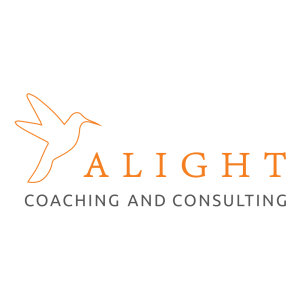In 2016, I decided that something needed to change. I needed to take a stand against white supremacy in my work, in service of reducing the harm white people (and the systems and institutions we’ve created) perpetuate against individuals and communities of color. I’d learned about systems of oppression as an undergrad and in grad school, witnessed how they played out firsthand in a decade of direct service nonprofit work, and developed my own anti-racist practices, but it was time to turn all of that learning and personal practice into something to offer other white people.
Through talking, listening, reading, researching, brainstorming, receiving coaching, writing, and thinking deeply about what I can offer, I’ve created a coaching experience for white folks who have had enough, but don’t know what to do next. It’s called Exploring Whiteness, and it’s an opportunity to do a deep dive into understanding whiteness, acting in solidarity with people of color, and expanding your role in the struggle for racial justice. The goal of this coaching experience is to deepen your understanding and analysis of whiteness and white supremacy, and to take meaningful anti-racist action. Below, I’ve answered all of the questions I ask when I consider a new opportunity – even if this isn’t the right opportunity for you, I’d love to know what you think.
What can I offer you, as a coach?
-
A brave and confidential space to discuss whiteness and white supremacy frankly and honestly.
-
Guiding questions designed to investigate your thoughts, feelings, needs, and values around acting in solidarity with people of color.
-
Resources (articles, videos, book recommendations, podcasts, etc.) to spark critical thought and offer new perspectives on topics related to white supremacy and racial justice.
-
A chance to uncover and challenge your beliefs and implicit biases around whiteness, race, and oppression.
-
Accountability and support with taking concrete steps to deepen your solidarity with communities of color.
Why does this matter?
-
Black men are 7 times more likely to experience violence at the hands of police and self-appointed vigilantes than white men. In 2010, the median net worth for a white family was $134,000, but the median net worth for a Latino family was $14,000, and for a Black family it was $11,000. For the last 60 years, the unemployment rate for Black Americans is about twice as high as for white Americans. From 1934 through 1968, it was legal to discriminate against Black and Latinx Americans who sought out home loans (a practice known as redlining). Currently, if you apply for a job with a white sounding name, you’re 50% more likely to get a callback for an interview than if you apply with a Black sounding name.
-
As white people, we hold racial privilege. One of the most powerful things we can do is to use that privilege to benefit those who do not hold it.
-
We are at an historic moment in history. Violence against people of color is being broadly exposed, and people of all races are standing up and saying that enough is enough. How white people respond in this moment will go down in history. I want to stand on the side of justice, and I want to stand there with you.
Who is this coaching opportunity a good fit for?
-
You’re a white-identified person who…
…is floored by the violence you’re seeing in the news against people of color, and don’t know how to address it.
…wants to better understand what white supremacy is and what you can do about it.
…is interested in learning about what it means to be an ally to communities of color.
…is a seasoned racial justice activist who wants to figure out what deepening your solidarity looks like.
…isn’t sure about your role in addressing racial justice, but you’re curious to learn more.
…is an educator or employer who wants to decrease white supremacy and increase racial justice in your classroom, school, or workplace.
Who is this not a good fit for?
-
You believe that you cannot make an impact on racial injustice in your day-to-day life.
-
You don’t think that there is a racial justice problem in this country.
-
You don’t have the time or energy to commit to investing in coaching that will stretch you and ask you to dig deep.
-
You don’t want a partner to explore solidarity with, and hold you accountable to taking the action steps you identify.
What’s the structure of this coaching experience?
-
10 weeks long
-
1 hour every other week, via Zoom (with or without the camera on! Your preference 🙂 )
What topics will we cover?
I’ve outlined a number of broader topics, ranging from personal identity, to guiding values / beliefs, to fears, and paired them with guiding questions and accompanying resources. I’m confident that between what you naturally bring to the table as a client and what I can offer in terms of topics, questions, and resources, we’ll have an incredibly rich coaching dialogue. I’m also confident that you will take meaningful action during and beyond the time we work together.
What will I come away with after completing this coaching engagement? What results can I expect?
-
Clarity on the impact of whiteness, both historically and currently, and what it means to act in solidarity with people of color.
-
Increased awareness of your beliefs and implicit biases about whiteness, race, and oppression.
-
Greater confidence in speaking knowledgeably and clearly about white supremacy and oppression with family, friends, colleagues, and community members.
-
Concrete, doable action steps you can take to incorporate acting in solidarity into your everyday life – sustainably, for the long term.
-
A trove of resources to expand your racial justice toolkit and share with others.
What if I’m already taking a class on whiteness, solidarity, or something similar? Would this be a repeat of what I’m learning and experiencing there?
Yes and no. Currently, there are a number of courses being offered that focus on white identity, oppression, acting in solidarity, and related topics. I can’t overstate how glad I am that these exist, and that they’re being brought into our collective consciousness – I’ve taken them, too! Coaching is different than taking a class. It’s a chance to take a deeper, more personal dive into the information, questions, doubts, fears, and limiting beliefs you have about race and solidarity. Unlike a class, it’s focused entirely on your needs and goals for learning and growth: we get to co-create the syllabus and the pace. You also get to determine when and where this experience will take place (which is a lot easier to do when there are only a couple of schedules to account for!). While there may be an overlap in some of the content, the way in which you’ll engage with the content is radically different than a class or course, for the reasons shared above.
What makes you qualified to do this sort of thing?
That’s a really good question, and my answer depends on what you mean by “qualified”.
-
If education credentials hold value for you, I have a bachelor’s degree in Sociology with a minor in Ethnic Studies, and a master’s degree in Education, with a focus on Learning, Diversity, and Urban studies.
-
If professional experience means more to you, I can tell you that I worked for nonprofits and schools for over ten years, serving primarily communities of color alongside mostly white colleagues. In a previous nonprofit role, I combined coaching and case management in my work with youth of color for three years.
-
If you’d like to know about my experience as a coach, I can share that I’ve graduated from Leadership That Works’ Coaching for Transformation program, a nine-month coaching certification program that resulted in me becoming a Certified Professional Coach. As of 2022, I’ve been coaching individuals for 9.5 years.
-
Ultimately – and I would argue, most importantly – I’m a white woman who has witnessed the impacts of systemic racism on people of color whom I care about deeply, and I’ve committed myself to continuous anti-racist learning and action, to do my part in mitigating harm. I believe that white people are responsible for addressing this immensely important, life-or-death issue, so I can’t, in good conscience, not do this work.

